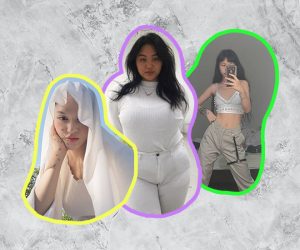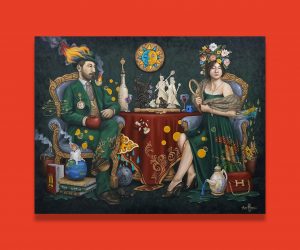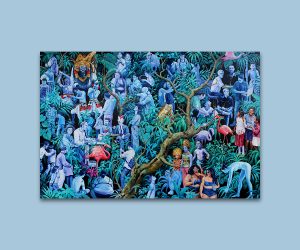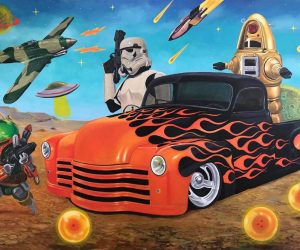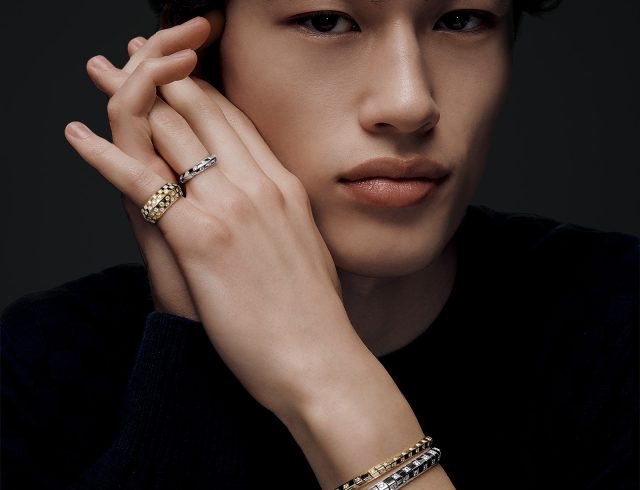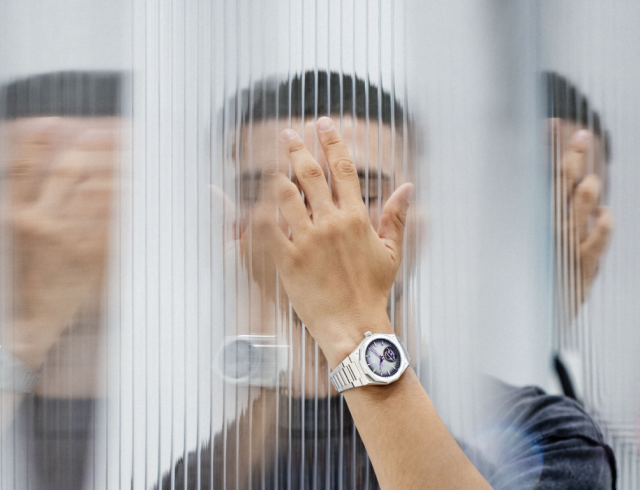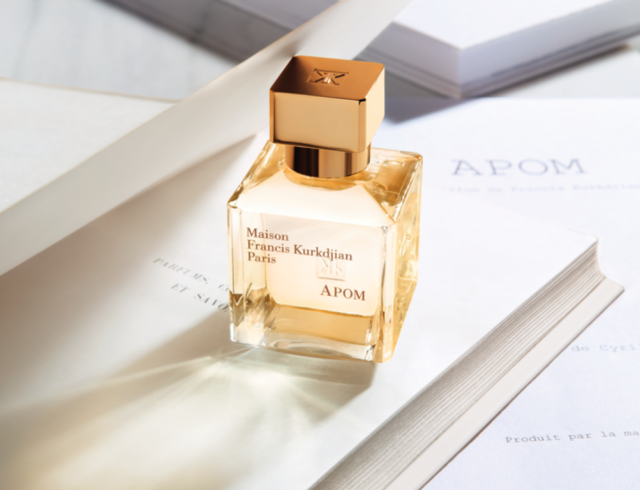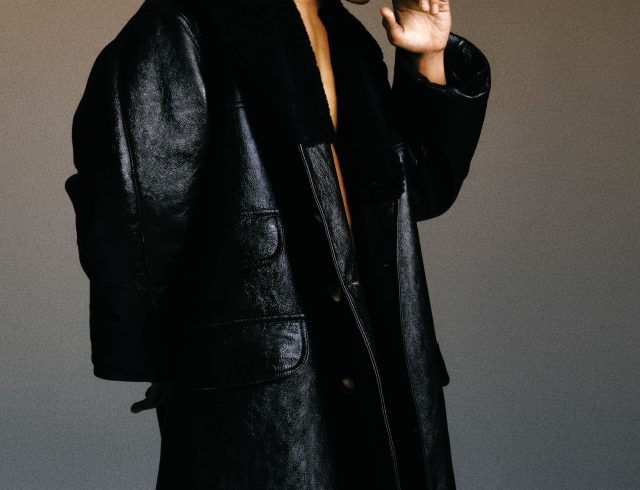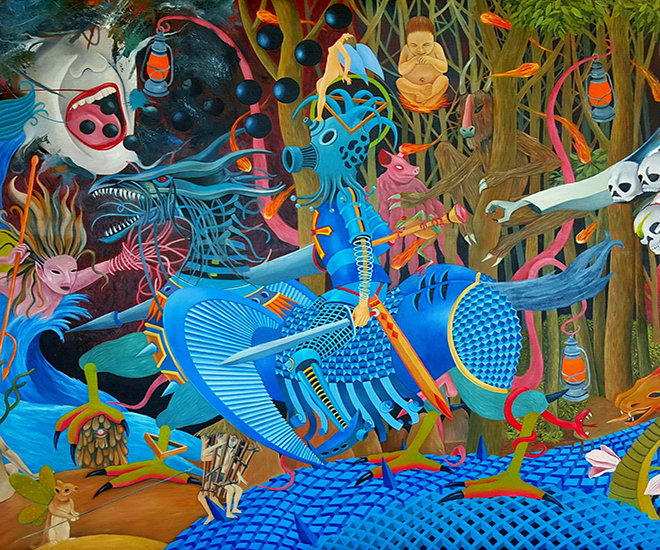
Born and raised in a family of artists, Darel Betita Javier, unlike his two siblings, was not quick to follow in the footsteps of their parents. Graduating with knowledge of architecture in 1992 from La Consolacion College- Bacolod, Darel spent much of his time in North Carolina, working on construction projects, before finally returning to the Bacolod City of Philippines. Finally pursuing what he was always meant to, Darel is now a full time-evolving artist, forever endowed with the pleasure of experimenting in every aspect of his work.
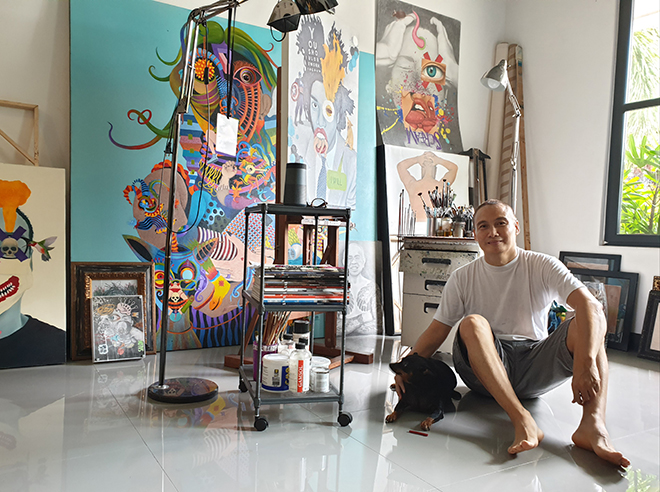
You grew up in the Philippines in a family of artists. How important has been this positive family environment in allowing you to express your art?
Art for me is just like a sport. It’s a playful thing. I never imagined that someday I will be just like my late dad doing art and enjoying it. I did not take art seriously when I was younger. My two brothers were already joining art competitions from the time we were elementary and high school, but not me. It was only after I came back from the US that I became a full-time visual artist.
You then emigrated to the US for a few years (North Carolina). A major culture shock and a substantially different environment from the Philippines. What major learning(s) did you bring back from the US?
To be on time. In the US, it is important to be on time for an appointment or a meeting. The people there are always punctual and they always respect everybody’s time.
How important for you, was the recognition of your talent in 2014 when you won the Philippines Art Awards- Visayas (Juror’s Choice Awards)?
2014 is one of the most memorable years of my life. This award is important to me, as this is where I gained confidence to work harder in my field. This was the first time my work was displayed in Manila and the first time I saw and met famous visual artists in a show. It was the time I realized that the art world in the Philippines is alive and I’m so excited to be part of it.
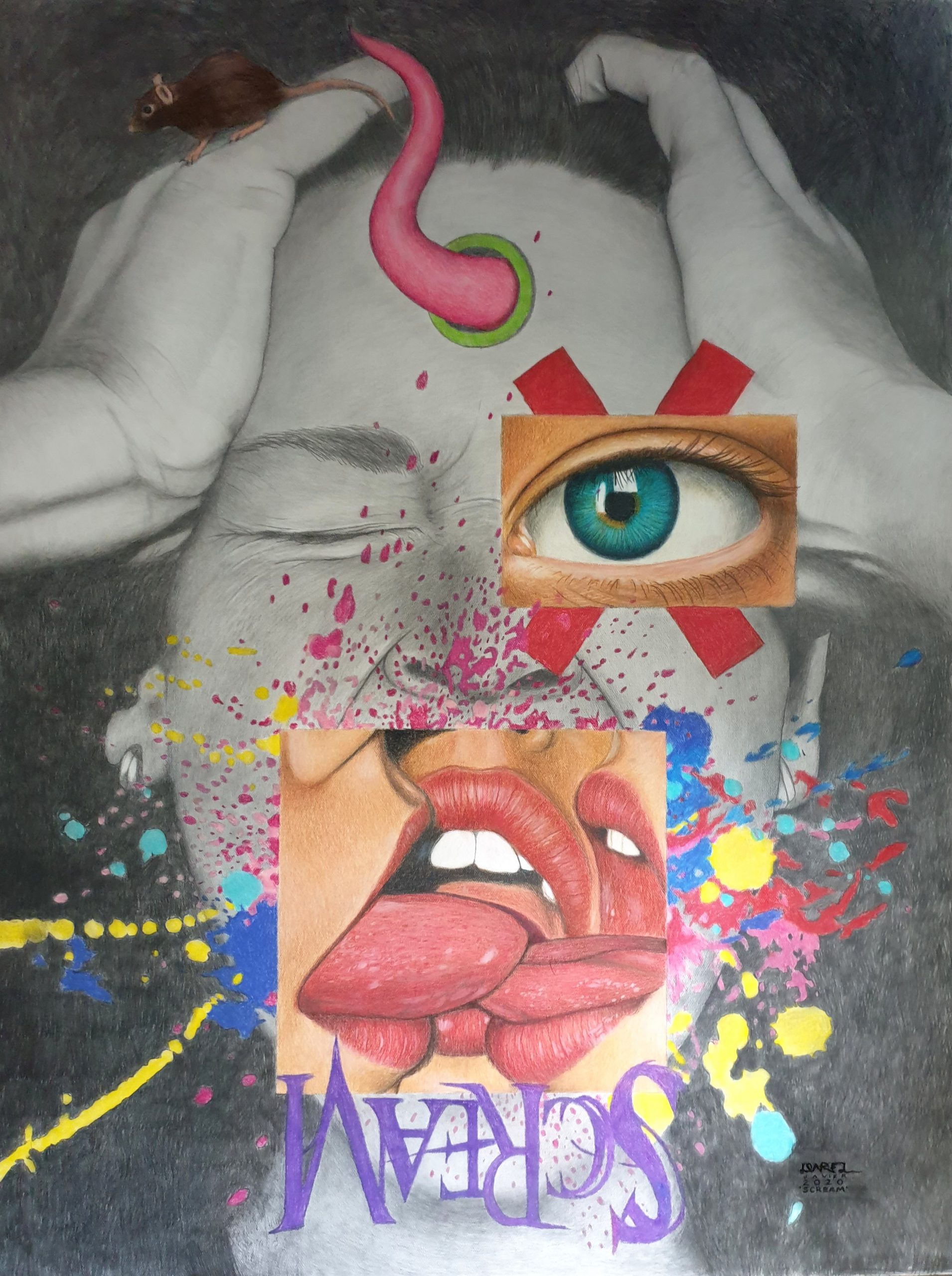
SCREAM. Colored, pencil, 40inx30in.
You are always looking for new techniques in your art (coloured pen, pen and ink, paper cutting). How would you describe your style?
For me looking for a new style and technique in art should be continuous. I’m always curious and it’s a never-ending learning experience. I want to explore learning new things and styles. I think I will never be content in doing or discovering new techniques, materials and ideas.
Some of my work looks like a collage but actually it’s a painting. I often use surrealism, conceptual realism, and collaged styles.
You were born and brought up in the Philippines, a Catholic country where religion is a central pillar within society. How important is religion in your art? What religious references do you like to refer to?
I am a Christian, I respect all kinds of beliefs and I don’t really touch religions in my art.
What is your creative process like? Where do you find your inspiration?
I usually draw it first on paper or tracing paper before finalizing it on a canvas. I often find my inspiration from my family, especially from my wife, who has always believed in my work, since the beginning. She is a very supportive wife, and for an artist that is a very important thing.
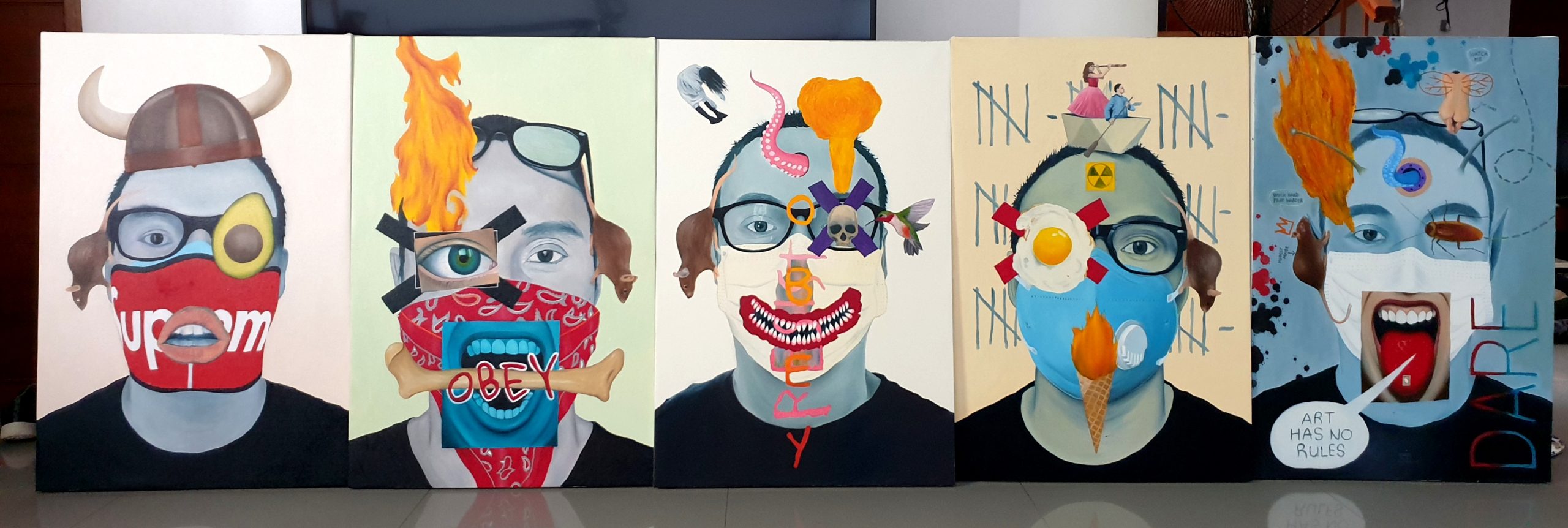
SELF PORTRAIT SERIES.
Which is the role the artist plays in society? How do you view the current art scene in the Philippines? How important is the space given to artists in modern Filipino society?
Artists help people and communities find their voice to be heard through art. It helps people express their feelings and learn to appreciate colours, textures, emotions and the beauties around them. The art scene in Philippines is very alive! A lot of new art galleries have opened, and more art exhibitions are happening. More young people have begun to appreciate art, and there are more younger art collectors emerging. The art scene in the Philippines is getting more exciting every year.
Any current or past Filipino artist who has influenced you?
I have a lot of present Filipino artists who influenced me a lot. I call them my art idols or the “masters”. Some of which are, Ronald Ventura, Rodel Tapaya, Andres Barrioquinto, Lynyrd Paras, Jon Jaylo and Jason Montinola.
Can you let our readers know about your favourite Art Museum in the Philippines?
Ilomoca, Bencab & The Pinto Museum but I have never been there. The Pinto Museum is on my wishlist for when this pandemic ends. It’s the most Instagram-worthy museum in Asia. As it is an hour from Manila, I tried to go there many times when I have group shows in Manila but I’m always short of time. Because I usually stay only for 2 to 3 days and then go back again to Bacolod. Manila is so crowded, it’s a big city. I don’t belong there. I only go there when I have group shows.
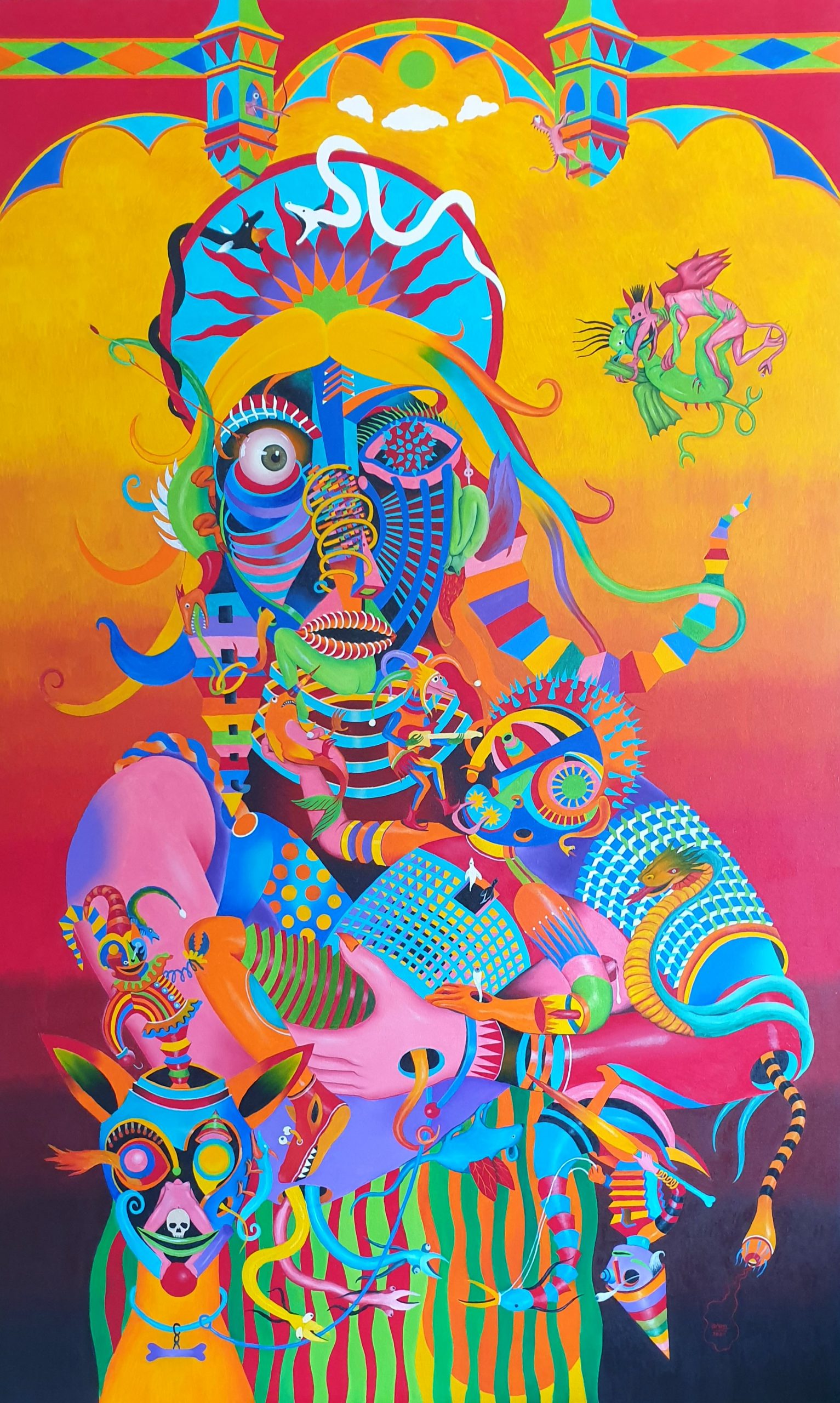
MOTHER’S PARADOX.
The five words that best describe your art?
Exceptional, unique, expressively composed, and evolving.
In which city can we expect to see your next solo exhibition?
In Manila. I have upcoming solo shows but because of the pandemic, they were rescheduled.
Where can we see some of your work online, are these for sale?
You can find my artworks and upcoming shows on my Instagram. Each post is labelled ‘available’ or ‘sold’.
If you were to name one mentor who has inspired you in your life and path as an artist, who would that be?
Of course my late dad, Eng. Eduardo D. Javier. He was an engineer, a visual artist, a muralist (who made the longest wood mural in Asia 1969), a sculptor, a Dad and a mentor.
By Julia Roxan



